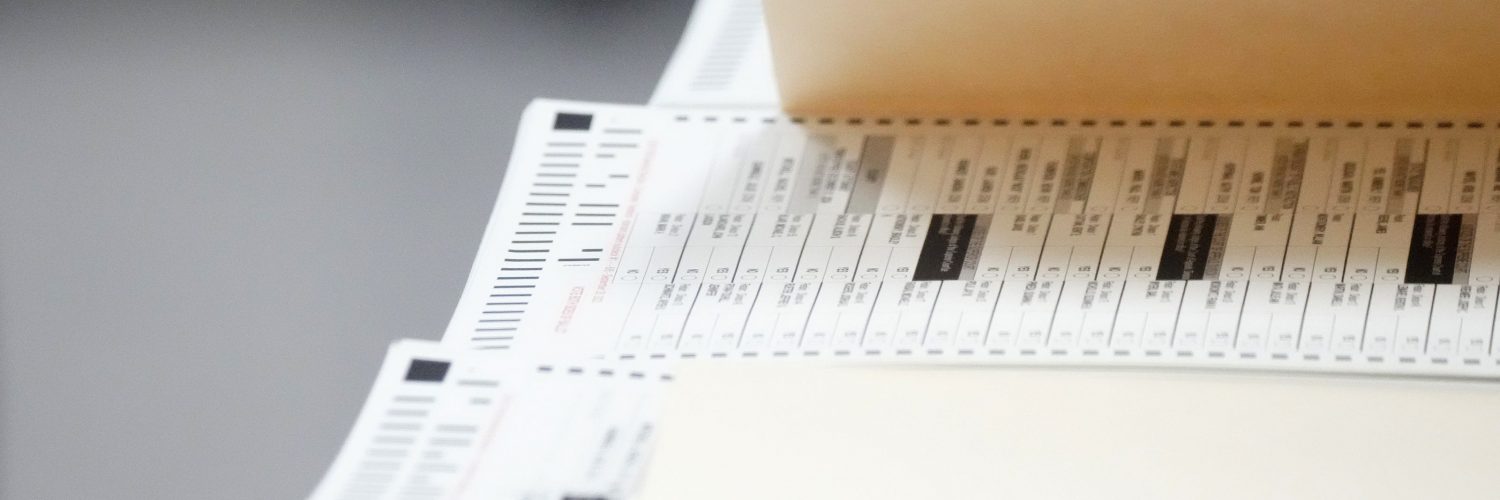As candidates and political action committees gear up for the 2024 election, Arizonans are beginning to get a glimpse of not only who but what could be on their ballots.
In addition to the usual elected positions for which they’ll cast ballots, Arizona voters could also be faced with several ballot measures. A function of the state’s Progressive Era constitution, Arizona has an expansive initiative process that allows voters, special interest groups, and legislators to put proposed statutes and constitutional amendments up for a statewide vote.
While certain regulations restrict the scope of the process — questions must be limited to a single subject rule, and measures that raise taxes must pass by at least 60% to take effect — it allows Arizonans the opportunity to make policy at the ballot box.
Here’s what you can expect to see on your ballot, whether you vote in-person on November 5, 2024, or by mail beforehand.
Federal offices
- President and Vice President of the United States
The Presidential Preference Primary, which is a closed primary in which only members of the competing parties may vote, will take place on March 19, 2024.
- U.S Senator (the seat currently held by Sen. Kyrsten Sinema, IND)
- U.S. Congress (All nine Arizona congressional districts)
The primary election for Republicans and Democrats is August 6, 2024.
Statewide elected offices
Three Corporation Commission seats will be up for reelection in 2024.
State Legislature
All 30 state Senate and all 60 state House seats will be voted on.
Ballot measures
The state Legislature has referred four measures to the ballot.
- Emergency Declarations Amendment: The amendment would allow the state Legislature to terminate a “state of emergency” declared by a sitting governor, and for such state of emergency declarations to expire automatically after 30 days unless extended by the Legislature (unless in the case of a state of war or a natural disaster such as a flood or wildfire).
- Financial Benefit Upon Death of a First Responder Measure: The measure would levy a $20 fee on each conviction for a criminal offense in the state in order to pay for a $250,000 financial benefit to the spouses of first responders who are killed in the line of duty.
- Require Partisan Primaries Amendment: The amendment would mandate partisan primaries for partisan elected offices in the state, and prohibit other types of primary election (such as ranked choice voting). The amendment also includes language which preempts localities and other smaller jurisdictions from contradicting the amendment.
- Signature Distribution Requirement for Initiatives Amendment: The amendment would require signatures from 10% of each of Arizona’s legislative districts’ voting populations in order for an initiative to qualify for the ballot (the threshold is 15% for proposed constitutional amendments).
And here are several potential measures that could be on Arizonans’ ballots, depending on if proponents collect enough valid petition signatures to qualify for the ballot.
- Abortion Access Act Amendment: The amendment would establish a “fundamental right to abortion” in the state constitution, prohibiting any restriction on this right prior to the point of “fetal viability” (defined as the point at which a fetus could survive outside of the womb “without the application of extraordinary medical measures”).
- Minimum Wage Increase Initiative: The measure would increase the state’s minimum wage by $1 over the regular annual cost of living adjustments in 2025 and 2026. It would also phase out the so-called tip credit, which permits employers to pay tipped employees less than the mandated minimum hourly wage, until tipped employees are making the full minimum wage in addition to whatever tips they earn.
- Candidate Randomization on the Ballot Initiative: The measure would randomize candidate order on ballots, so that candidates are not listed in party order.
To secure a spot on the ballot, backers must secure at least 255,949 valid signatures.
Local elected offices
In addition to the federal offices and ballot measures, Arizonans will vote for local elected officials. These elections vary by county and by city, so any interested voters should do research through their city government websites, or through their county recorders’ office.
















Add comment